 Very special and very touching wedding was held in Namibia, Africa. And what makes this celebration so adorable is that the groom was 85 and the bride was 54. It was a traditional wedding ceremony and festivities of the Herero people, an outstanding local ethnic group. Their wedding traditions reflect their lifestyle that they have been keeping for centuries. Let’s take a peek at the traditional Herero wedding and find out how much it differs from a usual European or American wedding.
Very special and very touching wedding was held in Namibia, Africa. And what makes this celebration so adorable is that the groom was 85 and the bride was 54. It was a traditional wedding ceremony and festivities of the Herero people, an outstanding local ethnic group. Their wedding traditions reflect their lifestyle that they have been keeping for centuries. Let’s take a peek at the traditional Herero wedding and find out how much it differs from a usual European or American wedding.
A very special ceremony recently took place in Eastern Namibia – people were getting ready for a three-day traditional Herero wedding. The significance of this ceremony, however, is the provenance of the people getting married. Professor Mburumba Kerina, the man instrumental in naming Namibia, was getting married.
“This is, probably, one of the most important weekends in my life”, says Prof Kerina.
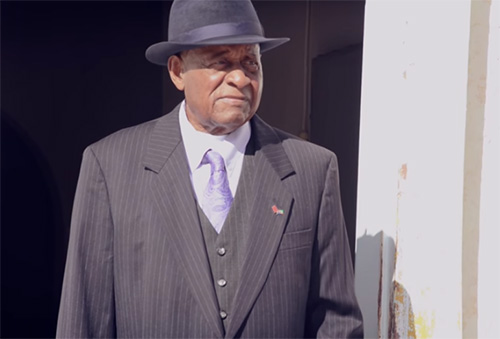
Professor Mburumba Kerina, the groom
His bride Naomi (Kikii) Zauana had spent the week in a room prepared specially for the wedding in her father's house.
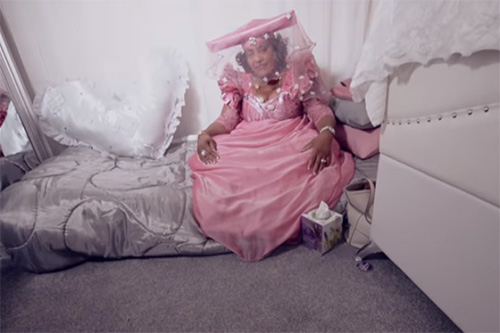
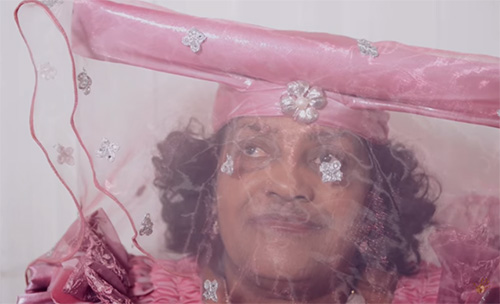
Naomi (Kikii) Zauana, the bride
“It's a wonderful experience because I've never experienced this before. And I'm telling you that it's a complicated process. Because here's my wife, who is literally a stone away from me. I cannot even be close to her until when the moment comes that, traditionally speaking, now is the time for me to meet my bride. Her family in this part of our country is a very highly respected family”, says Prof Kerina.
Kerina's father-in-law welcomed Kerina into the family.
“I heard about Professor Kerina when I was in school. I heard his history. We met when he came back from abroad. So now we are giving him our daughter”, says Kikii’s father.
Today is the beginning of the ceremony.
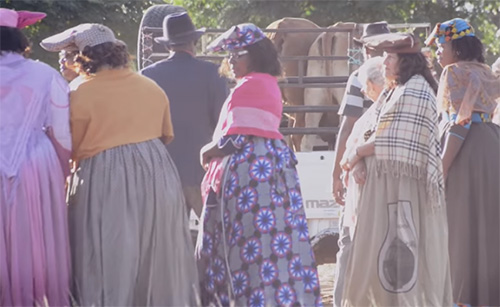
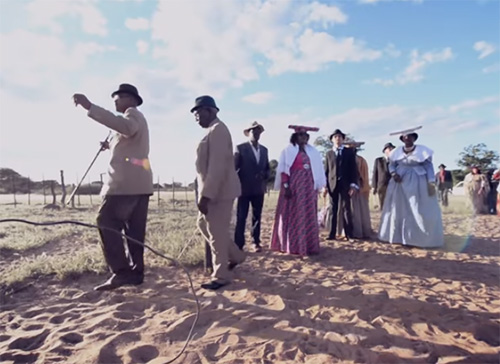
“We're taking the cattle, follow the cattle up into the corral. The representative of my clan’s side will go into the corral and the representatives of my wife's parents will also go into the corral to meet and ritually exchange money, and also to have one of the ladies (who's my niece) to put her ring into my wife's finger”, explains Prof Kerina.
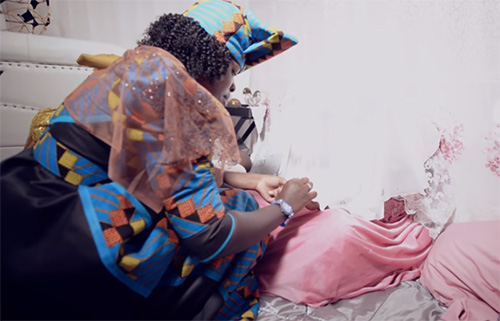

As the night approached and everyone returned to their separate camps for some rest, a man from the bride's family carried a chair, a burning branch, a pillow, a blanket, and a cooking port to the groom to comfort him during the cold lonely night.
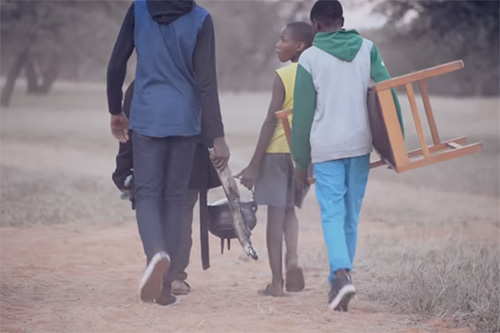
Early the next morning, the traditions continued with Kerina selecting two cows from his father-in-law’s corral to be slaughtered for the ceremony. The festivities then got underway with the meat for the best cooking over the fire. As a culture which revolves around cattle, several rich ones followed. These include the ribbing taken to the bride and groom during the course of the day to symbolize the joining of the families and the bonding of the couple.
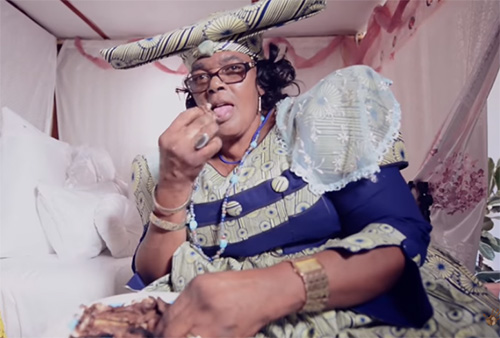
Weddings rituals for females were then performed. Women started to dress up in the flamboyant long traditional dresses and characteristic cow-horn headdresses of the Herero. The women from the two families came together to sing, clap, and stamp their feet in the sand, as the tradition dictates.
Guests could now mingle freely to celebrate the union.
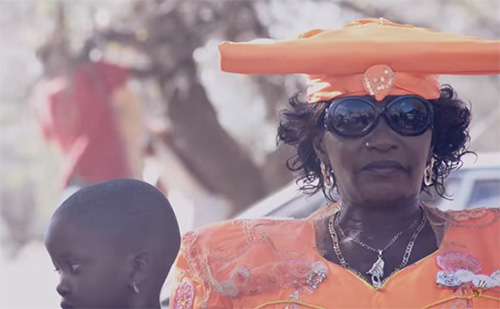
The men tapped toes under the trees, where they sat, dressed immaculately in their suits, with hats and knob-handled sticks.
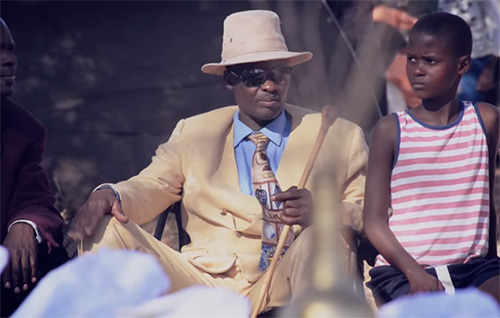
A wedding lunch was prepared and served at a long table in the groom’s camp, followed by dancing and celebrations. The festivities were only just beginning as the sun set. And people danced the night away to the lively tunes of Namibian singer Big Ben.
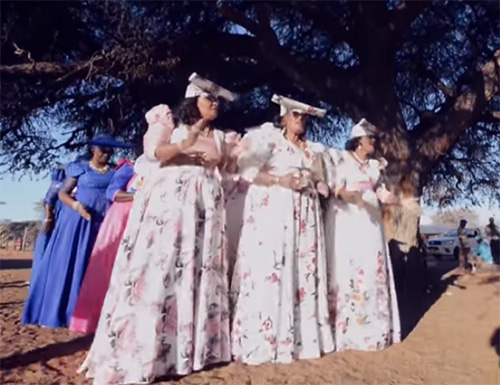
On Sunday morning, as people woke up and went about their daily business, it was time for the last traditions to conclude the wedding ceremony. The family groups gathered one last time – this time, at Kerina's father-in-law's home – to hear the marital advice given by the bride's father and uncles, before the couple were finally allowed to depart the homestead as man and wife.
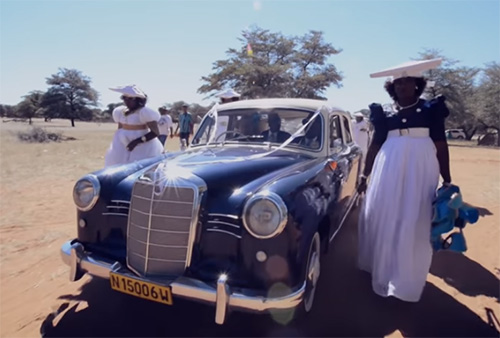
“I have been away from our country for 40 years in exile and I have lost contact with all our relatives. But this weekend is the weekend that makes me and restores me in my own community. I would like to thank all of you for being with me and sharing it with my wife and myself, and I hope that this friendship will not end today here. We will continue into the future, as long as God allows us to be together”, says Professor Mburumba Kerina.
Unfortunately, it wasn’t long this couple was meant to be together. Naomi Zauana died soon after the wedding.
(c)

